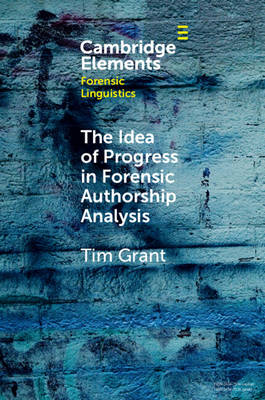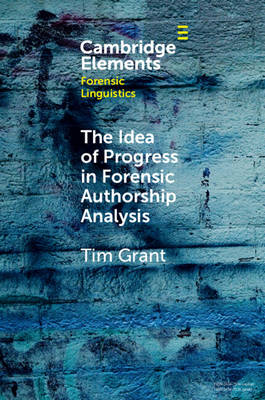
- Afhalen na 1 uur in een winkel met voorraad
- Gratis thuislevering in België vanaf € 30
- Ruim aanbod met 7 miljoen producten
- Afhalen na 1 uur in een winkel met voorraad
- Gratis thuislevering in België vanaf € 30
- Ruim aanbod met 7 miljoen producten
Zoeken
Omschrijving
This Element examines progress in research and practice in forensic authorship analysis. It describes the existing research base and examines what makes an authorship analysis more or less reliable. Further to this, the author describes the recent history of forensic science and the scientific revolution brought about by the invention of DNA evidence. They chart the rise of three major changes in forensic science - the recognition of contextual bias in analysts, the need for validation studies and shift in logic of providing identification evidence. This Element addresses the idea of progress in forensic authorship analysis in terms of these three issues with regard to new knowledge about the nature of authorship and methods in stylistics and stylometry. The author proposes that the focus needs to shift to validation of protocols for approaching case questions, rather than on validation of systems or general approaches. This title is also available as Open Access on Cambridge Core.
Specificaties
Betrokkenen
- Auteur(s):
- Uitgeverij:
Inhoud
- Aantal bladzijden:
- 75
- Taal:
- Engels
- Reeks:
Eigenschappen
- Productcode (EAN):
- 9781108971324
- Verschijningsdatum:
- 19/05/2022
- Uitvoering:
- Paperback
- Formaat:
- Trade paperback (VS)
- Afmetingen:
- 152 mm x 229 mm
- Gewicht:
- 122 g

Alleen bij Standaard Boekhandel
+ 63 punten op je klantenkaart van Standaard Boekhandel
Beoordelingen
We publiceren alleen reviews die voldoen aan de voorwaarden voor reviews. Bekijk onze voorwaarden voor reviews.











